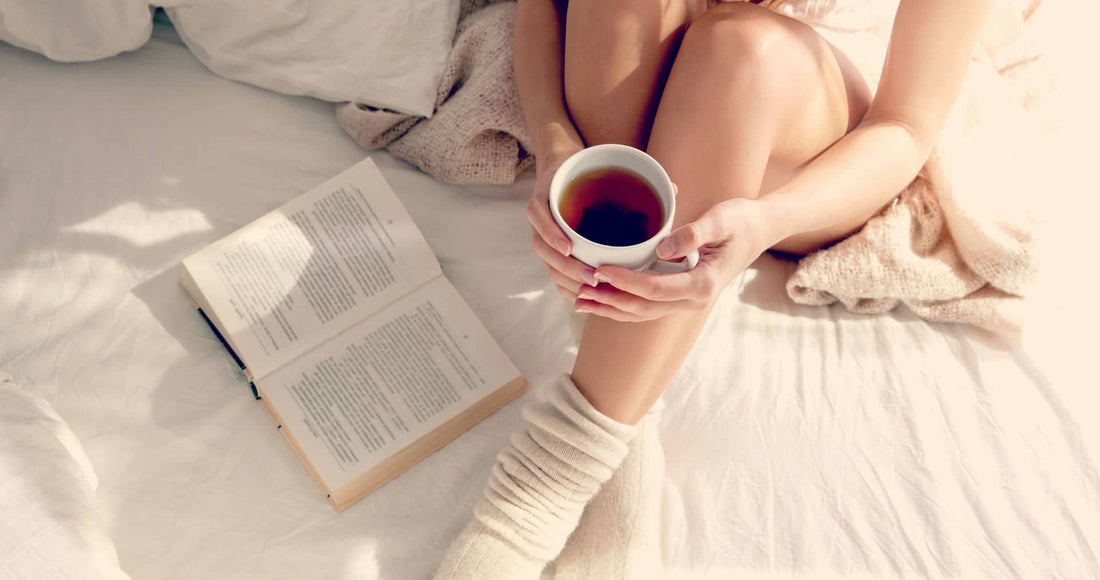
Does “Sleepy Tea” Actually Help You Get to Sleep?
Share
You’ve seen the soothing and reassuring boxes of herbal tea on the shelves of your local grocery store that call to you when you’re having trouble sleeping – they say “Just drink this and you’ll drift off to Dream Land” with their cute little pajama-clad bears or alluringly steaming mugs of drowsiness.
But do they really deliver on their promises?
Most of the “sleepy teas” on the market share similar active ingredients, such as chamomile, valerian root, and passionflower. Yet as consumers, we can’t help but wonder just how active those ingredients really are when it comes to helping people get to sleep.
Chamomile has developed a pretty strong reputation for soothing those that drink it, even though there has been no scientific evidence that proves it has a significant impact on sleep induction to date. One small study done in 2011 did suggest that there was a modest benefit to “daytime functioning” for those that drank chamomile tea, but also noted that there was no difference in the sleep quality between study participants that were given chamomile extract and those given a placebo.
Valerian root has had some more luck in the world of scientific data with a 2010 study showing that those suffering from insomnia experienced an increased amount of sleep time. Although these results should be taken with a grain of salt, due to the fact that the subjects were asked to record their own results in sleep diaries, as opposed to being observed by sleep study professionals.
Passionflower earned the top rating when it came to convincing data. It not only had the largest number of support on the Internet via sleep support forums, it also was shown to significantly improve sleep quality amongst the self-recorded results of a 2011 study, in comparison to those that were given a placebo in its place.
Even with some mixed reviews and a shaky backing from scientists, there is still something to be said about the comfort of a warm mug of herbal tea at bedtime. Soothing pre-bedtime rituals have been shown to be just as effective as ingesting any of the active ingredients in “sleepy teas,” and are definitely recommended by health and sleep experts alike.
It has been proven time and time again that humans are creatures of habit, and simply signaling your body and brain that it is time for bed by partaking in the same low-key bedtime ritual each night can have a huge impact on your ability to fall asleep more easily, and stay asleep for longer.
Whether you choose to imbibe in a hot cup of tea, a warm bath, or even praying before you turn in for the night, finding a consistently quiet and soothing way to clue your body into the fact that it’s bedtime will help you to transition from the stress and hustle of the day into a gentle and lulling frame of mind.
While the “sleepy teas” on the market aren’t a magical medicine or guaranteed remedy, if they help you get relaxed and where you need to be to catch some Z's each night, then by all means, brew away!
